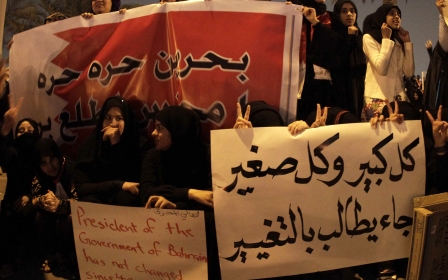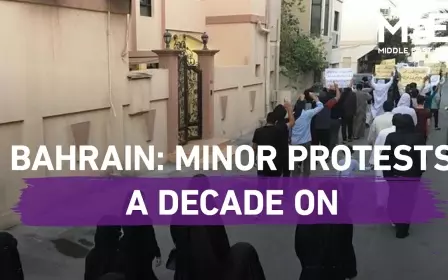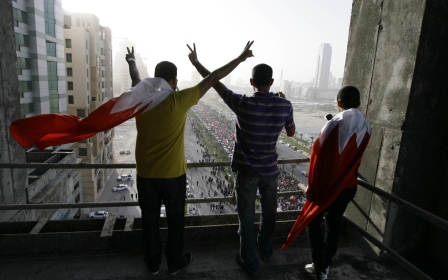Bahrain: Detained children abused, threatened with rape and electrocution
Police in Bahrain have beaten children who were arrested in protest-related cases last month, and threatened them with rape and electric shocks, Human Rights Watch (HRW) revealed on Wednesday.
According to the rights group, four children remain in detention and are being tried as adults, including a 16-year-old with a serious medical condition.
HRW has called for action to be taken and for the children to be released.
“Bahrain should release all children when there are alternatives to detention and drop abusive charges against them," the report read.
'The UK, US, and other governments should ensure that their security support to Bahrain is not being used to torture and humiliate kids'
- Bill Van Esveld, HRW
In some of the cases cited, children as young as 13 were arrested, beaten and threatened. Later, they were summoned by a prosecutor without their parents or a lawyer present.
Bill Van Esveld, the associate children’s rights director at HRW, said that the instances of abuse against children in Bahrain are the latest example in a long record of harm done to children in the country.
“The UK, US and other governments should ensure that their security support to Bahrain is not being used to torture and humiliate kids,” he said.
Sayed Ahmed Alwadaei, the advocacy director at the UK-based Bahrain Institute for Rights and Democracy (BIRD), condemned the way the police treat children in the country.
“A police officer who threatens a 13-year-old with rape or electric shocks from a car battery is an abominable stain on Bahrain’s reputation,” he told HRW.
In one of the cases detailed in the report, Sayed Hasan Ameen, 16, was arrested and detained on 11 February for allegedly throwing a Molotov cocktail.
Ameen, who suffers from medical complications due to sickle cell anaemia and kidney and lung infections as well as heart problems, has been prohibited from seeing his family who provides his medication.
Rights groups have warned that his underlying conditions make him increasingly vulnerable to contracting the coronavirus, particularly after he was hospitalised and spent a week in intensive care after suffering a seizure.
Preemptive crackdown
Last month, small protests took place across parts of Bahrain to mark the 10th anniversary of the 2011 uprising. The sporadic protests were not as big as in previous years due to a heavy police presence and coronavirus restrictions.
According to HRW, the Bahraini authorities have used preemptive or arbitrary arrests to deter people from protesting around major events, such as the Formula One races.
In some of the examples of mistreatment, advocates stated that police detained 13 children in early to mid-February, in some cases for allegedly burning bicycle tyres or blocking roads. If convicted, the sentences against some of the children could result in up to 20 years in prison.
Earlier this month, an open letter from rights groups addressed to US Secretary of State Antony Blinken called on Washington to prioritise human rights in its foreign policy with Bahrain.
The letter highlighted the "alarming deterioration" of the human rights situation in Bahrain, and the escalating crackdown on human rights defenders in the country. The letter also called on Blinken to pressure Bahrain to rescind bans on opposition parties, civil society groups and independent media.
The signatories emphasised that the Biden administration should reinstate restrictions on arms sales to Bahrain pending an improvement in the country’s human rights situation.
Last week, Amnesty Bahrain issued a report calling for urgent action to be taken over four Bahraini minors who are being tried as adults.
The 2011 protests were quickly crushed after the Bahraini government brought in troops from neighbouring Gulf states, mostly Saudi Arabia and the United Arab Emirates.
The government has since cracked down heavily on dissent, banning opposition parties and jailing dozens of activists and journalists.
Middle East Eye propose une couverture et une analyse indépendantes et incomparables du Moyen-Orient, de l’Afrique du Nord et d’autres régions du monde. Pour en savoir plus sur la reprise de ce contenu et les frais qui s’appliquent, veuillez remplir ce formulaire [en anglais]. Pour en savoir plus sur MEE, cliquez ici [en anglais].




